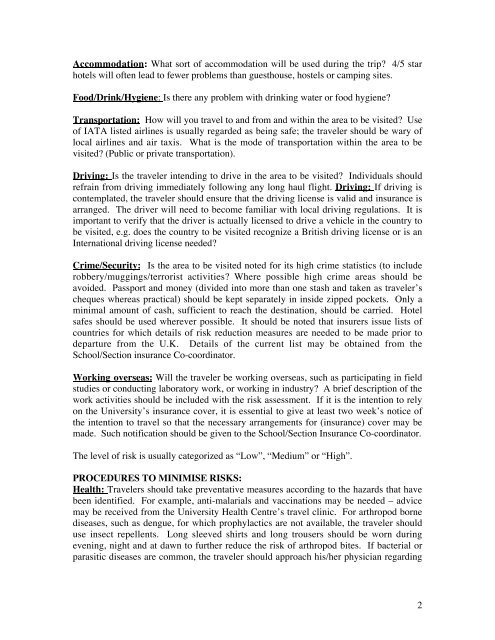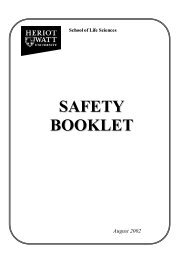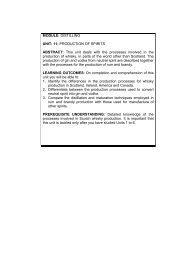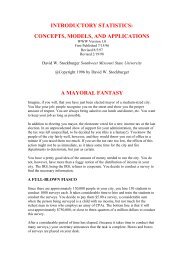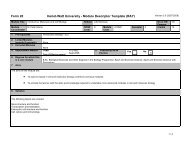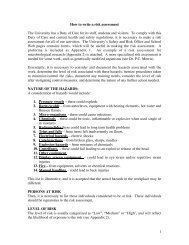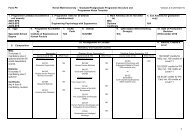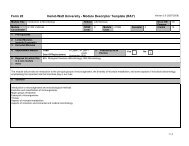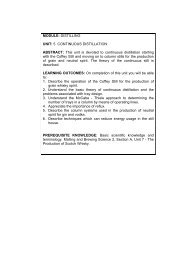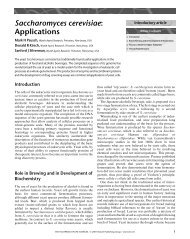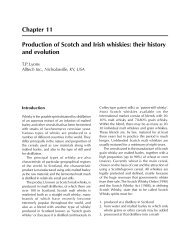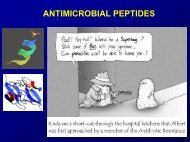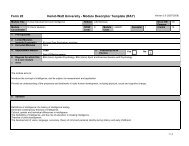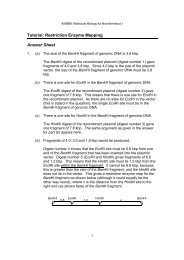HW Risk Assessment form for Travel Overseas - Heriot-Watt University
HW Risk Assessment form for Travel Overseas - Heriot-Watt University
HW Risk Assessment form for Travel Overseas - Heriot-Watt University
- No tags were found...
You also want an ePaper? Increase the reach of your titles
YUMPU automatically turns print PDFs into web optimized ePapers that Google loves.
Accommodation: What sort of accommodation will be used during the trip? 4/5 starhotels will often lead to fewer problems than guesthouse, hostels or camping sites.Food/Drink/Hygiene: Is there any problem with drinking water or food hygiene?Transportation: How will you travel to and from and within the area to be visited? Useof IATA listed airlines is usually regarded as being safe; the traveler should be wary oflocal airlines and air taxis. What is the mode of transportation within the area to bevisited? (Public or private transportation).Driving: Is the traveler intending to drive in the area to be visited? Individuals shouldrefrain from driving immediately following any long haul flight. Driving: If driving iscontemplated, the traveler should ensure that the driving license is valid and insurance isarranged. The driver will need to become familiar with local driving regulations. It isimportant to verify that the driver is actually licensed to drive a vehicle in the country tobe visited, e.g. does the country to be visited recognize a British driving license or is anInternational driving license needed?Crime/Security: Is the area to be visited noted <strong>for</strong> its high crime statistics (to includerobbery/muggings/terrorist activities? Where possible high crime areas should beavoided. Passport and money (divided into more than one stash and taken as traveler’scheques whereas practical) should be kept separately in inside zipped pockets. Only aminimal amount of cash, sufficient to reach the destination, should be carried. Hotelsafes should be used wherever possible. It should be noted that insurers issue lists ofcountries <strong>for</strong> which details of risk reduction measures are needed to be made prior todeparture from the U.K. Details of the current list may be obtained from theSchool/Section insurance Co-coordinator.Working overseas: Will the traveler be working overseas, such as participating in fieldstudies or conducting laboratory work, or working in industry? A brief description of thework activities should be included with the risk assessment. If it is the intention to relyon the <strong>University</strong>’s insurance cover, it is essential to give at least two week’s notice ofthe intention to travel so that the necessary arrangements <strong>for</strong> (insurance) cover may bemade. Such notification should be given to the School/Section Insurance Co-coordinator.The level of risk is usually categorized as “Low”, “Medium” or “High”.PROCEDURES TO MINIMISE RISKS:Health: <strong>Travel</strong>ers should take preventative measures according to the hazards that havebeen identified. For example, anti-malarials and vaccinations may be needed – advicemay be received from the <strong>University</strong> Health Centre’s travel clinic. For arthropod bornediseases, such as dengue, <strong>for</strong> which prophylactics are not available, the traveler shoulduse insect repellents. Long sleeved shirts and long trousers should be worn duringevening, night and at dawn to further reduce the risk of arthropod bites. If bacterial orparasitic diseases are common, the traveler should approach his/her physician regarding2


